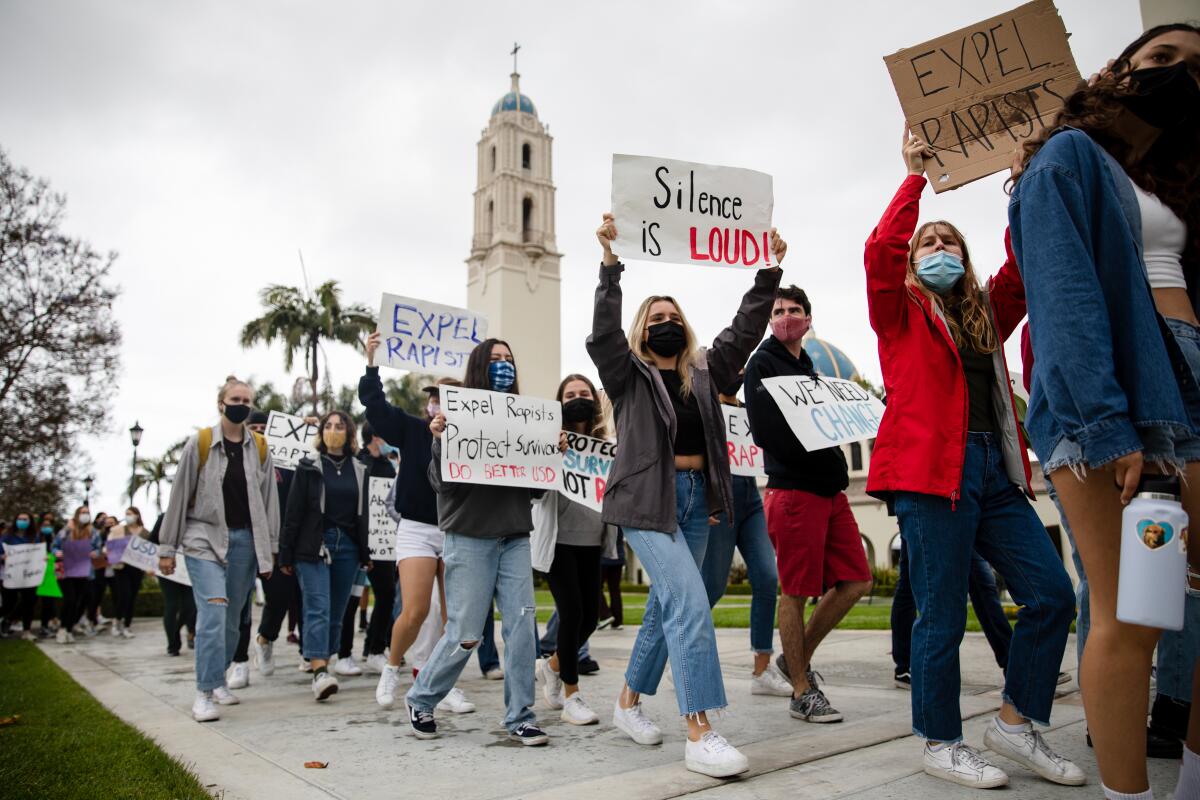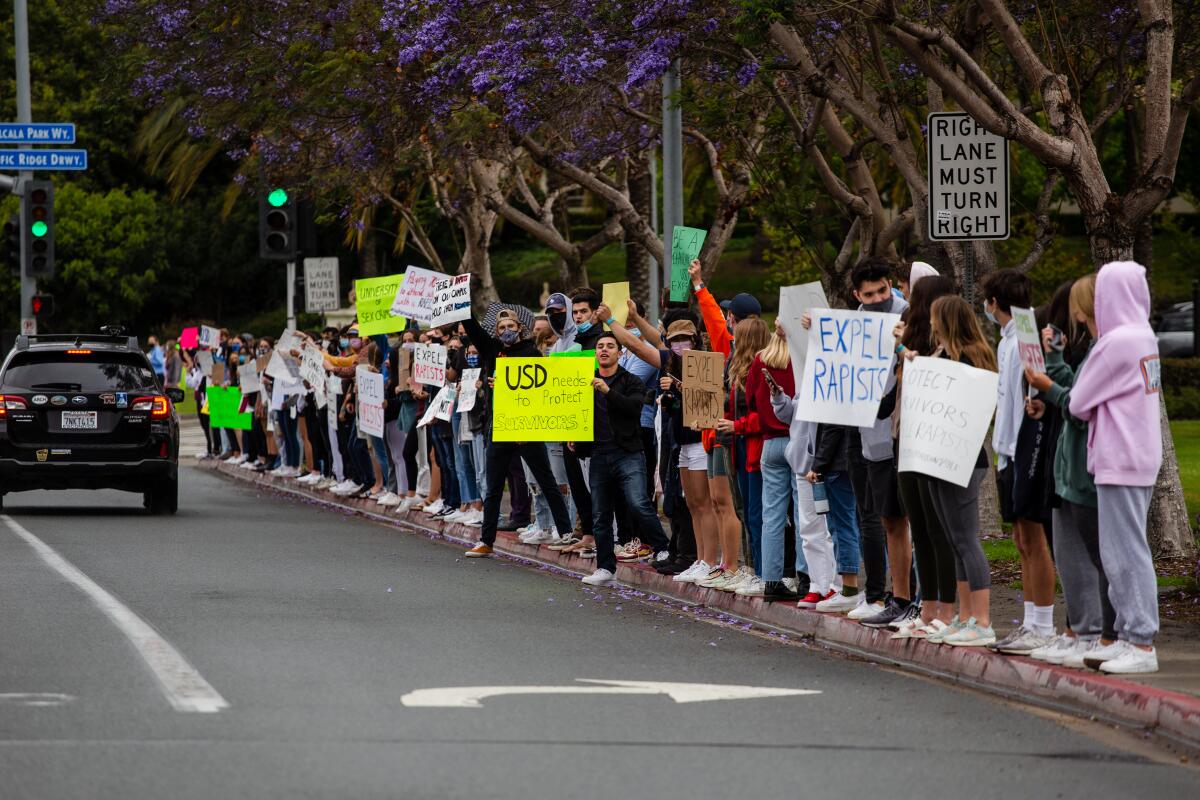University of San Diego students call for harsher punishments for sexual assault

SAN DIEGO â More than 100 University of San Diego students held a protest on the edge of campus Sunday demanding the university expel all students found guilty of sexual assault by a campus hearing board.
The protesters said they were frustrated that a student found guilty of sexual assault was banned from campus for the spring semester instead of being expelled, contending his possible return this fall would make the campus unsafe.
University officials declined to discuss the specific incident for privacy reasons, but they stressed that sexual assaults are handled case by case and that punishments are based on a thorough review of all circumstances.
Officials said they couldnât reveal whether the student received any punishment beyond the one-semester ban, such as community service. But they said it would be âhighly unusualâ for a student to be suspended without any other sanctions.
âWe strive to ensure that our strict procedures are followed consistently and that we address every reported incident with sensitivity, compassion and accountability,â the university said in an email.
The protesters described the universityâs approach differently, contending that officials donât take sexual assault seriously enough and have not put into place tough enough punishments to make students feel safe.

âThey have a history of not bringing justice,â said Lexie Rollings, a graduating senior who helped organize the protest. âItâs just easier for them.â
Chanting slogans such as âExpel rapistsâ and waving signs with messages including âI donât want to graduate next to rapists,â the protesters said the University of San Diego should have a blanket policy of expulsion for all students found guilty of sexual assault.
Thatâs not just for criminal cases, but for cases in which the victim has chosen to seek justice through the campus Office of Ethical Development and Restorative Practices.
Such cases typically get decided by a hearing board made up of a faculty member, an administrator and a student, each of whom receive special training on sexual assault cases before coming to a decision, the university said.
Rollings said many victims choose that route to avoid the attention and emotional challenges of pursuing a criminal case and possibly having to testify in court.
âSome victims and survivors get retraumatized through reporting to the police,â she said.
But Rollings stressed that the one-semester ban in the case that sparked Sundayâs protest could make victims feel they either have to pursue a criminal case or not report assaults at all.
âWhy would someone want to go through the process of talking about their trauma for the school to say, âWeâre going to let him take a break for four months â just take a break and weâll see you in four months,ââ she said.
University officials said the students have a right to protest.
âWe defend the rights of students to exercise their freedom of expression and speak out on this important issue, but we also want to make very clear that the safety and well-being of the University of San Diegoâs students and community members is our highest priority,â the university said. âWe strive to reinforce a culture of prevention, response and accountability that ensures the safety, dignity and well-being of all members of our community.â
Rollings said the university has refused to meet with critics of its sexual assault policies, including the Gender Equity and Sex Positivity Collective, which led the protest.
Sophomore Christina Legford said students had spent weeks organizing the protest, which was held Sunday to coincide with on-campus graduation ceremonies.
She said nearly 5,000 people had signed an online petition urging the university to expel students found guilty of sexual assault. She recently persuaded the university to revamp a section of its website that she said focused too much on helping women avoid assaults.
âThe website had a lot of victim-blaming rhetoric,â she said. âWe should be telling perpetrators not to rape people instead of telling women to protect themselves.â
Sophomore Tyson Aramaki said participating in the protest was the least he could do.
âItâs definitely not enough, but being here is a good first step,â he said. âIâm not one to usually get mad at an institution, but here itâs definitely deserved. A semester off is nothing.â
More to Read
Sign up for Essential California
The most important California stories and recommendations in your inbox every morning.
You may occasionally receive promotional content from the Los Angeles Times.











